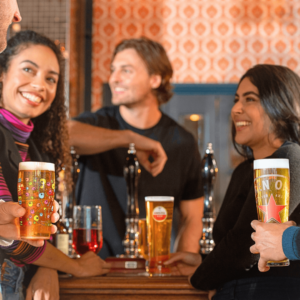
With JD Wetherspoon ditching their social channels last month, does this signify a change in the PR landscape?
Sure, social media isn’t the be all and end all of PR but as a communication tool it has been important for businesses and PR professionals alike.
While it seems the platform sprung up overnight, in truth its origins date back to the 70s. Cast your mind back to the era and what comes to mind: Travolta’s all white disco three piece? Perms? What most won’t remember is the creation of the first digital chat room in Illinois, the earliest iteration of social media.
Fast-forward a few decades and you hit the noughties. Myspace and Bebo were the social media monarchy.
Today things have changed. Now Facebook and Twitter rule the social media roost with a kingdom greater than any that came before them.
But, what is social media good for apart from pet videos and the occasional nosey through your current, or former, friend’s photos? Is it really the juggernaut that many of us have hyped it up to be in recent years?
For businesses the opportunities provided by social media are endless. The exposure it can provide offers an organisation the chance to expand exponentially. In fact, recent figures from the Office for National Statistics show that this is the primary reason that most small businesses use social media.
Knowing how to talk to customers and get your message across is crucial in the connected world and social media functions as an effective conduit for this.
It provides an avenue for conversation between customers and businesses in a one-to-one setting. People crave the personal nature of this interaction and it lets businesses shed their corporate collar and tie image to show their more relatable weekend wear side.
Social media is then essential for good PR in the contemporary setting, using the tool well and targeting audiences sets a business apart from its competitors.
![]()
While this is the case, social media is not for everyone especially if the returns aren’t great. The prospect of running a business and pressure of being at the internet’s beck and call could get old quickly if all it achieves is a few ‘Likes’.
This is why Wetherspoons isn’t alone in bidding adieu to social media with brands such as Absolut and Tesla also recently waving goodbye to various online platforms.
These organisations’ choice to close their social channels, however, brings with it its own set of challenges.
One such challenge is how, with their established channels closed, will customers now communicate with these companies?
Similarly, while Wetherspoons have sought to address potential issues through dedicating more resources to their in-house magazine, the question is then whether this will satisfy customers used to on demand customer service?
Wetherspoons deserve credit for being bold and original, however, the tough obstacles they must now overcome might prevent their decision becoming a trend anytime soon.









































